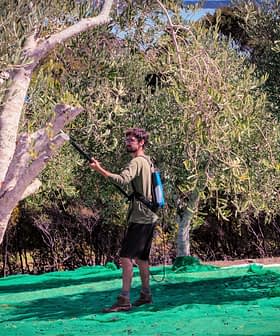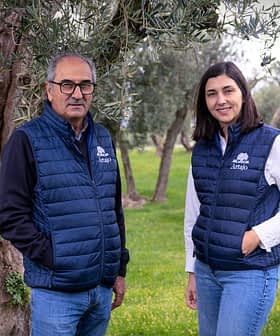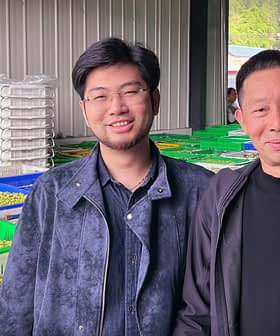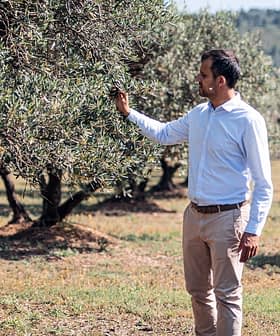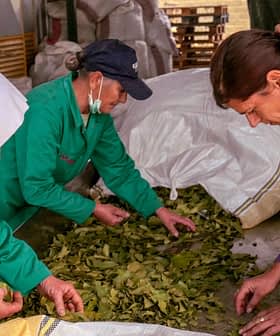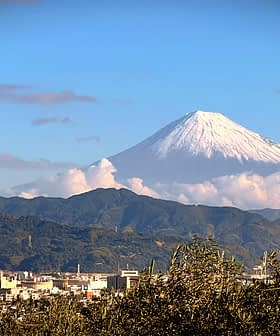How Resilience and Passion Drive a Boutique California Producer
In less than four years, the couple behind Chateau de Luz has overcome climate extremes, pests and labor challenges to craft world-class extra virgin olive oil.
 Although Sandra Austoni hails from generations of olive growers in France, she only recently discovered her passion for olive oil. (Photo: Sharisse Rowan Photography)
Although Sandra Austoni hails from generations of olive growers in France, she only recently discovered her passion for olive oil. (Photo: Sharisse Rowan Photography) In just four years, the couple behind Chateau de Luz turned a small olive grove into an award-winning olive oil brand, earning two Gold Awards at the 2024 NYIOOC World Olive Oil Competition. Despite facing challenges like climate change and finding workers, they focus on producing high-quality extra virgin olive oil at a small scale, emphasizing quality over quantity.
In four short years, the couple behind Chateau de Luz has transformed a small olive grove into an award-winning olive oil brand.
The small-scale producer in sun-soaked De Luz, California, earned two Gold Awards at the 2024 NYIOOC World Olive Oil Competition.
It may seem glamorous from the outside, but (olive farming) is a hard business that requires dedication and resilience.
“We are a boutique olive grove founded in 2021,” said owner Sandra Austoni. “We bought this operating grove in 2020, and the previous owner planted the trees in 2007, so our trees are still very young.”
“We offer two blends: an early harvest Athena, mostly unripe olives, and our regular blend Venus, which is 50 percent ripe and 50 percent unripe olives,” she added. “This year, we also introduced an Olio Nuovo of our Athena right out of the press, which was really successful.”
See Also:Producer ProfilesOriginally from Provence, France, Austoni said the company’s name is inspired by her past and present. “I also wanted to emphasize my French heritage with a name that is easily understandable for our market audience,” she said.
“My family has been growing olives in Provence for more than a century,” Austoni added. “It was never my goal to grow olives myself, but when we found this property while looking for a new home, I fell in love with it. So, this was not a planned event. It just happened through serendipity.”
From the outset, Austoni said the goal has been to produce high-quality extra virgin olive oil at a small scale from the company’s 600-tree grove.
“We have five Italian varieties: Frantoio, Leccino, Maurino, Moraiolo and Pendolino, as well as a few Kalamata trees that we also include in our blends,” she said.
“The positive is that we can process it within hours of harvesting. We can also constantly monitor our trees all year,” Austoni added. “Living among these beautiful trees is also a pleasure.”
Due to the company’s small size, Chateau de Luz focuses exclusively on high-quality small-batch production.

In 2020, Austoni and her husband bought a 600-tree olive grove comprising Frantoio, Leccino, Maurino, Moraiolo, Pendolino and Kalamata olives. (Photo: Sharisse Rowan Photography)
“We wanted to focus on quality versus quantity and keep increasing the quality of our olive oil every year through continual education and learned experience,” Austoni said.
She attributed the company’s success at the NYIOOC to the speed and efficiency with which Austoni and her husband harvest and mill the olives each autumn.
“The fruits start to degrade as soon as they are picked, so it is crucial to process them as soon as possible,” Austoni said. “We usually start our harvest early, as soon as there is enough light for our crew to harvest safely. We start to process within a few hours after harvest. Our goal is to mill on the same day.”
“We only process 250 kilograms of fruits at a time, so we are truly in an artisan-style process,” she added. “We focus on quality over quantity, even if that means we sacrifice our bottom line. We want our clients, family and friends to experience the best when they taste our olive oil.”
While the 2023/24 crop year was bountiful across California, Austoni said ample yields come with their own obstacles and highlight some of the company’s longer-term challenges.
“The 2023 harvest was extremely challenging,” she said. “Like everybody else in California, we had an overabundance of fruits and probably only harvested ten percent of our trees.”
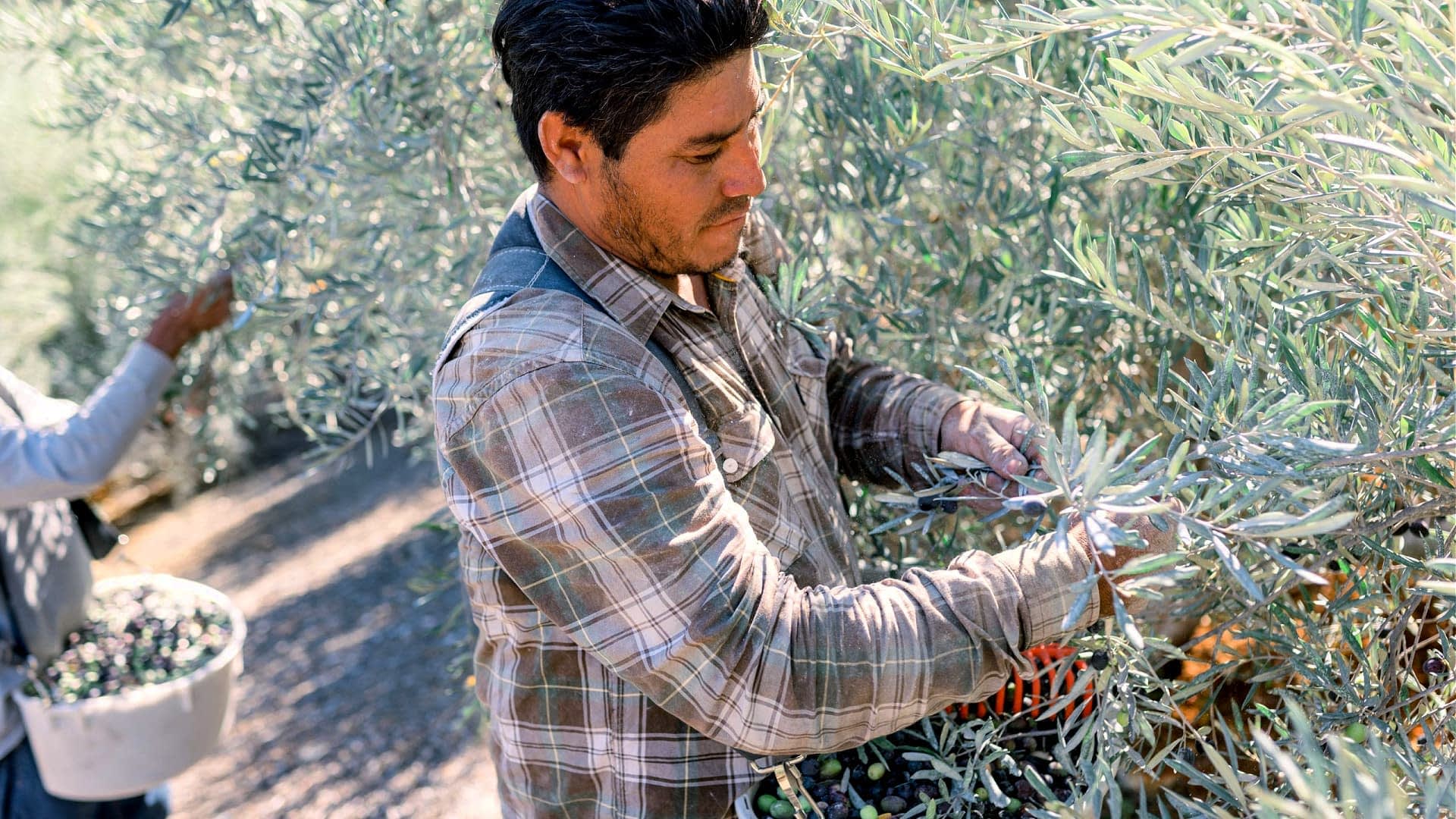
Hiring workers for the harvest remains one of the company’s challenges. (Photo: Sharisse Rowan Photography)
“We experienced several mechanical issues during the milling, which forced us to pause several times,” Austoni added. “We also experienced crew problems and retaining them because our harvest was overextended over several weeks. That was by far the most challenging harvest we ever had.”
Overall, she believes the two main challenges that the company will continue to face are the impact of climate change and consistently finding enough workers to work during the harvest.
“The change in weather patterns is affecting olive production with big variations in output from year to year, for which there is not much we can do except adapt,” Austoni said.
“The other main challenge is finding and retaining high-quality crews, especially during harvest time,” she added. “Many growers could not harvest last season because of a lack of crews. It just takes time to find good contractors who also want to learn and grow with us. We like to offer training and paid education to our main contractor as a way to retain him.”
Another consistent challenge the company faces is managing pest infestations using organic practices.
“We do suffer from the olive fruit fly in southern California,” Austoni said. “A proper program to control them and protect the fruit is essential. Without a healthy, high-quality olive, there is no high-quality olive oil. We use kaolin clay to protect our trees and our olives, a natural product approved for organic farming.”
In addition to these perennial challenges, Chateau de Luz also had to overcome rising production costs in the latest harvest.
“Everything is getting so much more expensive,” Austoni said. “We are such a small producer that we are not profitable, at least not yet. Because we focus on quality over quantity, we are priced more on the premium side. We also ensure that our packaging and labels reflect our high-end positioning.”
Despite the hard work and numerous challenges of olive farming in California, Austoni said winning awards at the World Competition and other local olive oil quality contests is a significant reward and helps the company build its brand.
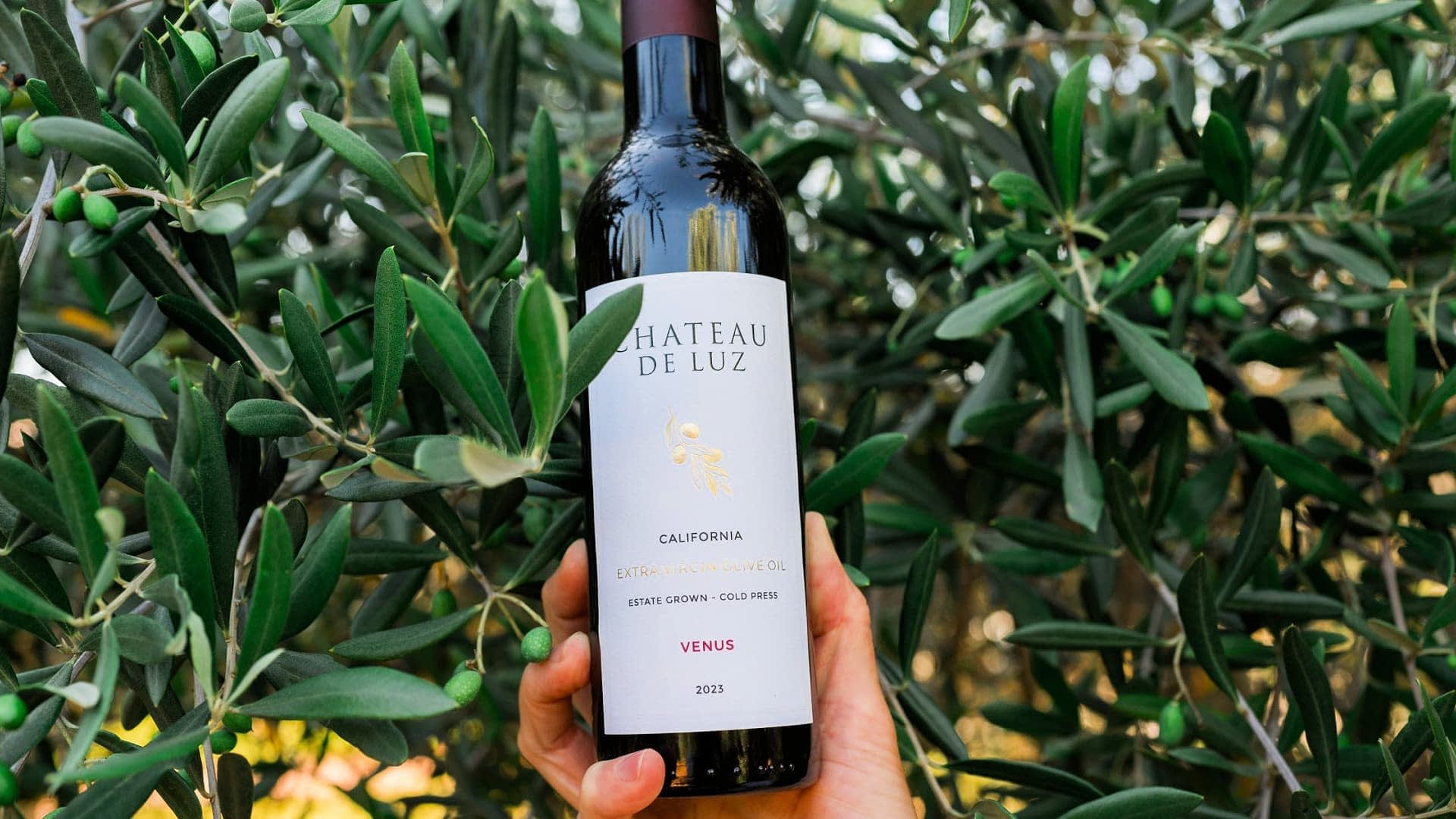
The elegant packaging behind the company’s efforts to market its boutique extra virgin olive oil. (Photo: Sharisse Rowan Photography)
“It was very rewarding to be recognized by such a prestigious organization, especially since we are pretty new on the scene,” she said.
“It is hard to evaluate the impact at this time, but it is certainly helping us to establish our brand. We were also able to sell our olive oil at the 2024 Los Angeles County Fair, which just concluded,” Austoni added. “We sold out our stock within a few days, which was a great experience for our brand exposure.”
While Austoni has not been able to plant her own trees yet, she said the company takes advantage of the previous grower’s efforts to produce olive oils high in polyphenols, which significantly contribute to olive oil health benefits and flavor profiles.
“I would probably have chosen French varieties if I were to plant a new grove,” she said. “The information we got from the previous owner is that they were selected for cross-pollination and also to get a maximum amount of polyphenol in the blend.”
Making the most of these high-polyphenol olive varieties requires harvesting the olives while they are green and getting them to the mill quickly.
“I handle the harvest and the sorting,” Austoni said. “We manually sort our olives before the milling, removing the ‘bad’ ones. This is a tedious process when done manually, but it guarantees that we will have top-quality oil.”
“We also constantly monitor the temperature during the malaxation and the separation processes,” she added. “My husband Alan is in charge of milling and operating the equipment. He has a background in mechanics and has always worked in the food industry, so that was a natural fit.”

Austoni’s husband, Alan, runs the mill while she oversees the olive harvest. (Photo: Sharisse Rowan Photography)
Once the harvest is completed, Austoni sends samples of the extra virgin olive oil to be certified at independent labs.
“It shows credibility and is considered best practice,” Austoni said. “Certifications also help to educate the consumer so they know what to look for when buying a high-quality extra virgin olive oil.”
Along with establishing credibility through certification, she believes educating consumers about high-quality extra virgin olive oil and sustainable farming practices is a priority.
“Through social media posts and various articles on our website, we aim to inform and educate,” she said.
While the work never ends for a small farmer, Austoni said rediscovering a passion for extra virgin olive oil production comes with intangible rewards.
“The challenge is that there is no delimitation between work and personal life, which I am sure many other farmers can relate to,” she said.
“Be patient. Like any agricultural business, this is not a get-rich-fast activity,” Austoni concluded. “It may seem glamorous from the outside, but it is a hard business that requires dedication and resilience. Passion is very important to weather the ups and downs,” she said.
Share this article



